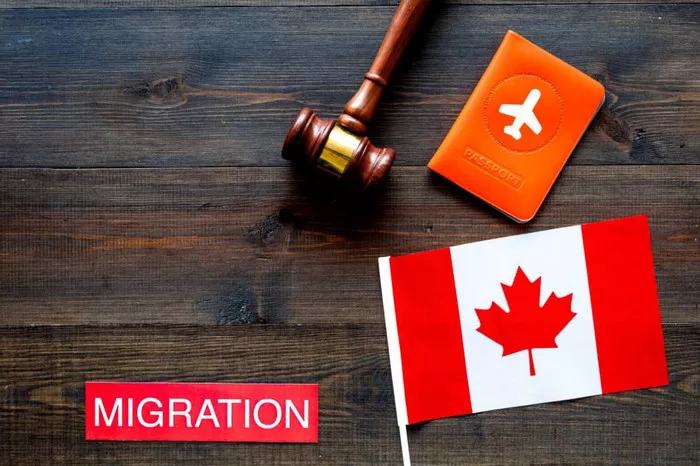As one of the most sought-after citizenships in the world, Canadian citizenship offers a plethora of benefits, including access to high-quality healthcare, education, and a stable economy. For many individuals, obtaining Canadian citizenship is a dream worth pursuing. However, the process can be complex and may require careful planning and adherence to specific requirements. In this comprehensive guide, we will navigate through the various pathways to Canadian citizenship, outlining the eligibility criteria, application process, and key considerations.
Understanding the Eligibility Criteria
Before embarking on the journey to Canadian citizenship, it is crucial to understand the eligibility criteria established by Immigration, Refugees, and Citizenship Canada (IRCC). Generally, there are several pathways through which individuals can become Canadian citizens:
1. Permanent Residency: The most common route to Canadian citizenship is through obtaining permanent residency. Individuals can apply for permanent residency through various immigration programs, such as the Express Entry system, Provincial Nominee Program (PNP), or Family Sponsorship program. Once granted permanent residency, individuals must meet residency requirements before being eligible to apply for citizenship.
2. Canadian Citizenship by Birth: Individuals born in Canada are automatically Canadian citizens, regardless of the citizenship status of their parents. This provision applies to individuals born on Canadian soil or born abroad to Canadian citizen parents in certain circumstances.
3. Citizenship by Descent: Individuals born outside Canada may be eligible for Canadian citizenship if one or both of their parents are Canadian citizens at the time of their birth. However, specific requirements and eligibility criteria apply, and individuals may need to take additional steps to claim citizenship by descent.
4. Naturalization: For individuals who do not qualify for citizenship through birth or descent, naturalization is another pathway to Canadian citizenship. To be eligible for naturalization, applicants must meet certain residency requirements, demonstrate proficiency in English or French, and pass a citizenship test assessing their knowledge of Canada’s history, values, institutions, and symbols.
Navigating the Application Process
Once eligibility criteria are met, the next step is to navigate the application process for Canadian citizenship. The process typically involves the following steps:
1. Gathering Required Documents: Applicants must gather the necessary documents to support their citizenship application, including proof of identity, residency, language proficiency, and any additional documents required based on their specific circumstances.
2. Completing the Application Form: Applicants must complete the appropriate citizenship application form provided by IRCC accurately. Any errors or incomplete information could delay the processing of the application.
3. Submitting the Application: Once the application form is completed and all required documents are gathered, applicants must submit their citizenship application to IRCC along with the applicable processing fee.
4. Undergoing Background Checks and Interviews: As part of the application process, applicants may be required to undergo background checks, including criminal record checks and security screenings. In some cases, applicants may also be interviewed by IRCC officials to assess their eligibility and verify the information provided in their application.
5. Taking the Citizenship Test: Applicants between the ages of 18 and 54 are required to take a citizenship test to demonstrate their knowledge of Canada and its values. The test typically covers topics such as Canadian history, geography, government, and rights and responsibilities of citizenship.
6. Attending the Citizenship Ceremony: Upon approval of the citizenship application, successful applicants are required to attend a citizenship ceremony where they take the Oath of Citizenship, officially becoming Canadian citizens.
Key Considerations and Tips
While the process of obtaining Canadian citizenship may seem straightforward, there are several key considerations and tips to keep in mind:
1. Residency Requirements: To be eligible for Canadian citizenship, applicants must meet residency requirements, which typically require individuals to have physically resided in Canada for a specified period. It is essential to maintain accurate records of time spent in Canada to meet these requirements.
2. Language Proficiency: Demonstrating proficiency in English or French is a crucial requirement for Canadian citizenship. Applicants may be required to provide evidence of language proficiency through standardized language tests or other means recognized by IRCC.
3. Dual Citizenship: Canada allows dual citizenship, meaning individuals can hold citizenship in more than one country simultaneously. However, it is essential to consider the implications of dual citizenship, such as potential restrictions on travel or obligations to fulfill military service in another country.
4. Seek Professional Assistance: Navigating the complexities of Canadian immigration law and the citizenship application process can be daunting. Seeking assistance from immigration professionals or lawyers specializing in Canadian immigration law can help ensure that the application is completed accurately and efficiently.
5. Be Patient and Persistent: The process of obtaining Canadian citizenship can be time-consuming, with processing times varying depending on various factors such as the volume of applications and individual circumstances. It is essential to remain patient and persistent throughout the process, following up with IRCC if necessary to inquire about the status of the application.
Conclusion
In conclusion, obtaining Canadian citizenship is a significant milestone that offers numerous opportunities and benefits. By understanding the eligibility criteria, navigating the application process diligently, and considering key considerations and tips, individuals can successfully achieve their goal of becoming Canadian citizens. While the journey may present challenges, the rewards of Canadian citizenship make it a worthy endeavor for many individuals seeking to call Canada their home.


